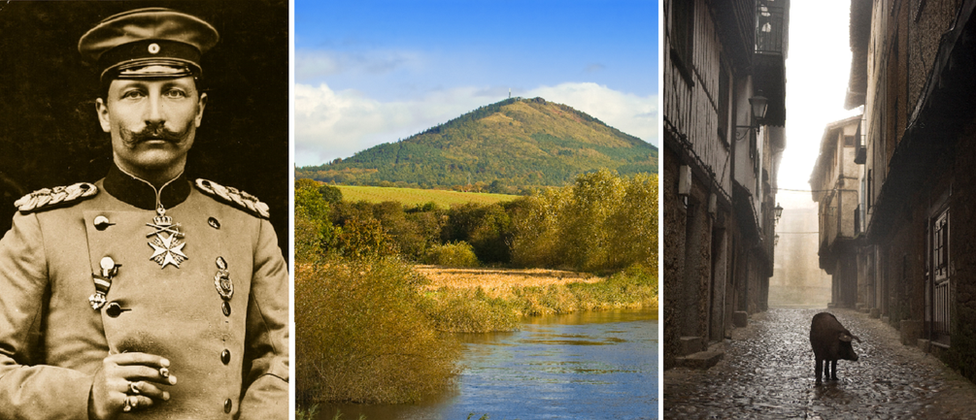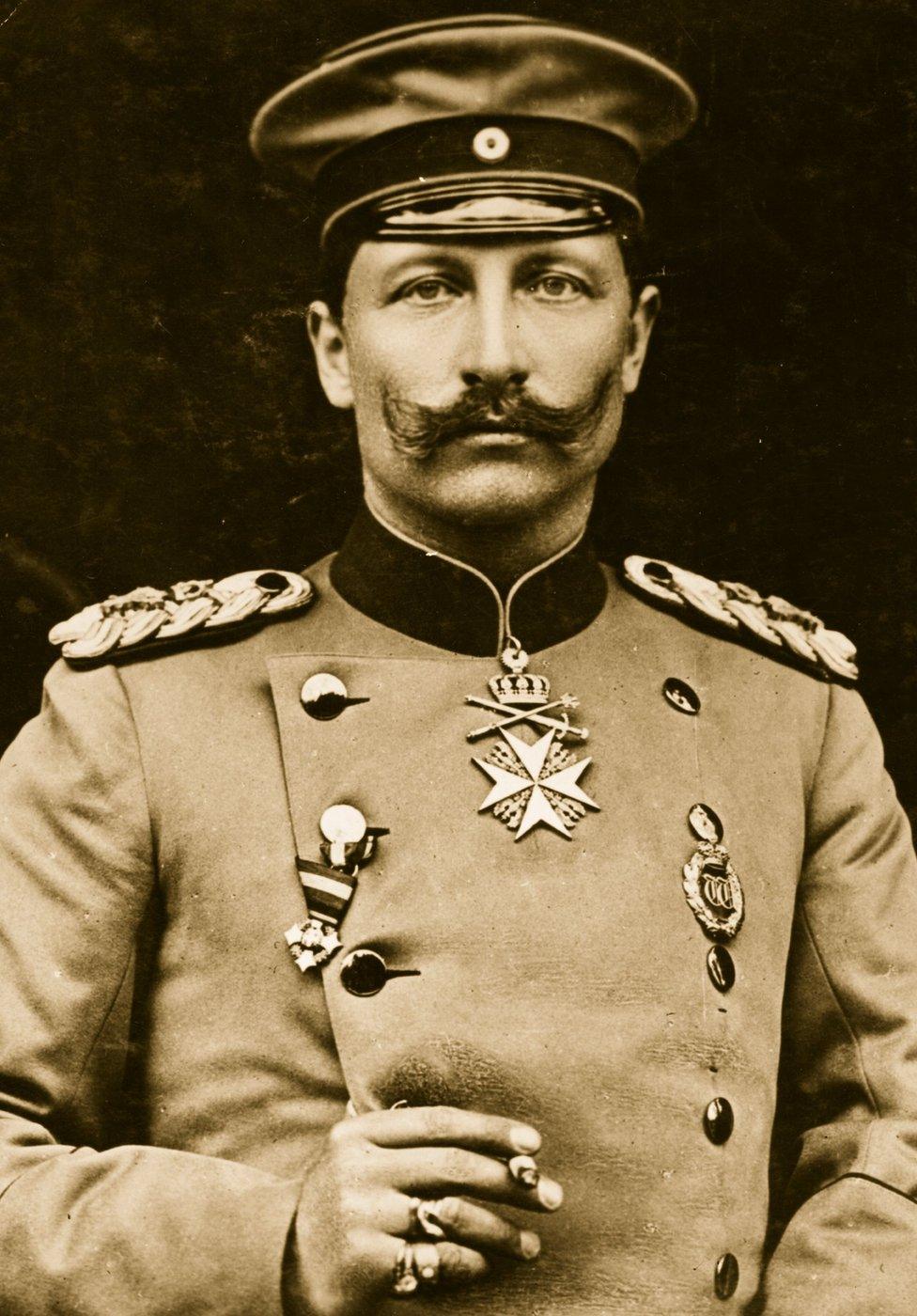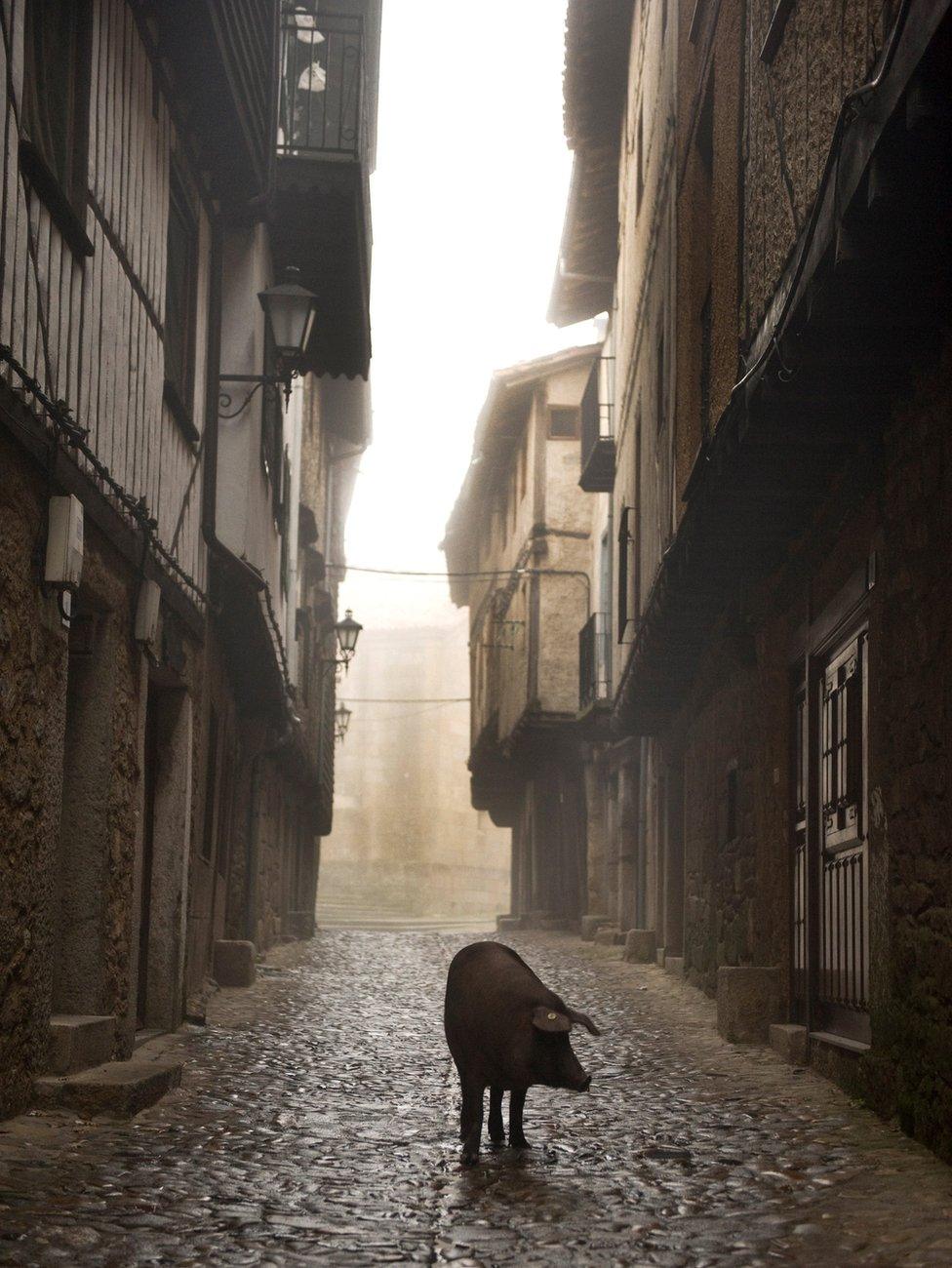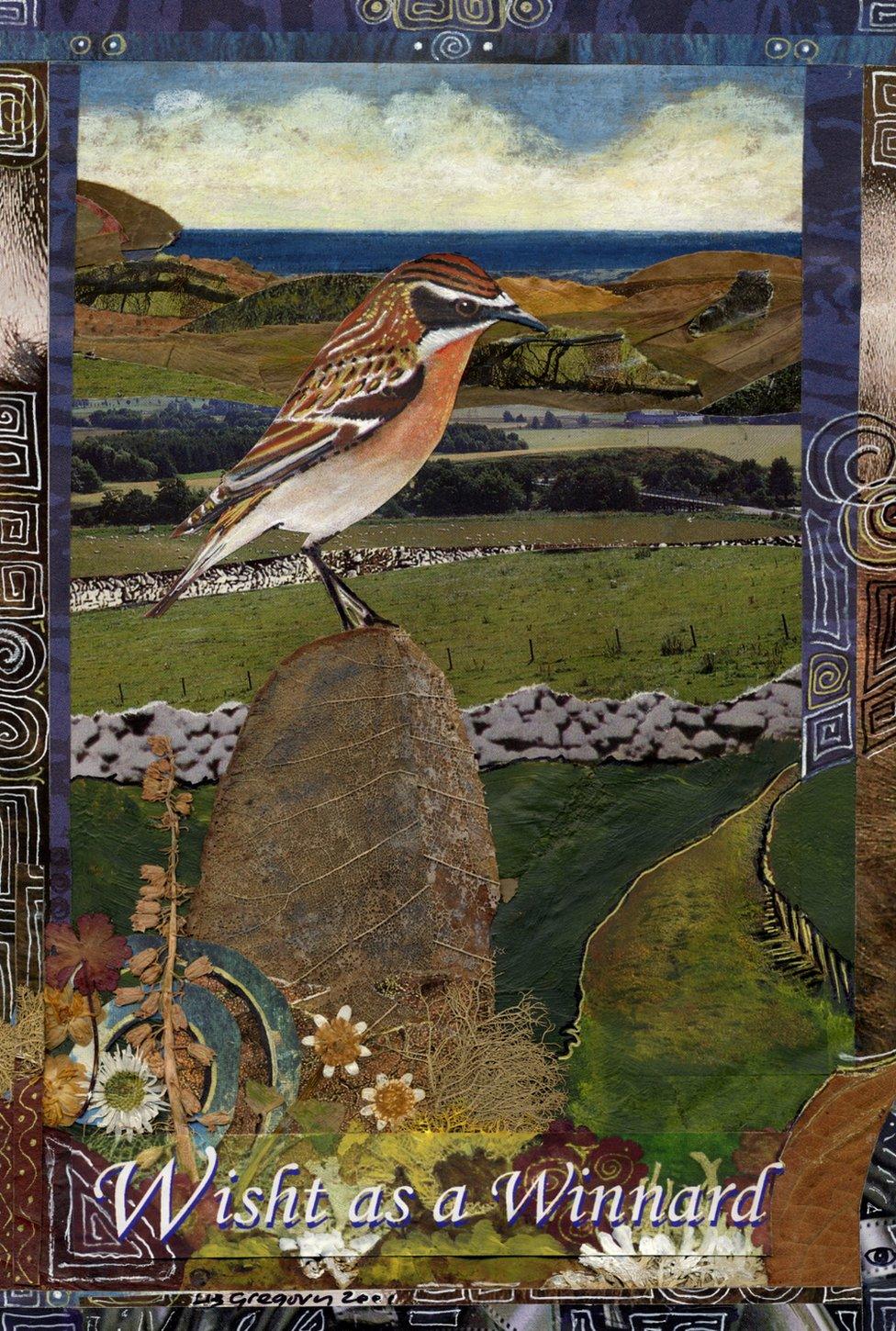England's oddest phrases explained
- Published

Is it a bit black over Bill's mother's? Or are you as wisht as a winnard? England is awash with peculiar sayings - but what do they all mean?

It's looking a bit black over Bill's mother's

Kaiser Wilhelm II (1859 - 1941) was the last German emperor and king of Prussia
It's looking a bit black over Bill's mother's, is often heard in the English Midlands when dark clouds appear on the horizon, heralding rain. But who is Bill?
"When I was a young boy the only person I knew called Bill was very old and it made me wonder how old must Bill's mother be?," said Matt McHugh, who contacted BBC News seeking the origin of the phrase.
"And why does she move house so much?"
Some believe "Bill" refers to William Shakespeare, whose mother Mary Arden lived in Stratford-Upon-Avon.
However, the smart money is on Kaiser Wilhelm II, the last German emperor and king of Prussia, abdicating at the end of World War One.
Germany's foreign policy at that time echoed Wilhelm's changeable and blustering character, according to the Open University., external
Black Country poet Brendan Hawthorne, external said: "If there was stormy weather coming from the East they would say it's black over Bill's mother's."

Couldn't stop a pig in a passage

Could you stop a pig in a passage?
Often used in Yorkshire by people decrying another's general incompetence, this phrase originally refers to someone who is bandy or bow-legged.
"It's someone who's got a great big gap between their legs - the inference is they couldn't catch anything," says actor Barrie Rutter, founder and artistic director of the Northern Broadsides theatre company based in Halifax.
"It does sound like an agricultural term when it would have been useful to be able to stop a pig."
Eric Scaife, from the Yorkshire Dialect Society, said there were various regional differences to the saying, with the words "ginnel", snicket", "snickleway" or "alley" being used in place of "passage".
"These terms mean the same: a narrow passageway between houses or other buildings," he said.
"It stems from Victorian days when it was common for people to keep a pig in the back garden. Also a common disease at the time was rickets, caused by a vitamin deficiency.
"One of the consequences of this disease among children was to become permanently bow-legged and therefore if the household pig escaped down the ginnel a person with this affliction would not be able to stop it. It would escape between their legs."

Wisht as a winnard

The whinchat, known in Cornwall as the winnard, migrates in winter to warmer places
"Growing up in Cornwall in the 1950s on a farm with Cornish parents, and spending my school holidays on a farm with my gran and grandad who were very broad Cornish, I heard these phrases every day," says Liz Gregory, an artist.
The phrase means a cold, or sickly, person and derives from the whinchat bird, known locally as the winnard, which migrates in winter to warmer places.
The saying refers to the ones that get left behind in the cold.
"Wisht as a winnard was a common one in wintertime when we cycled home from school in the cold and wet," adds Ms Gregory.
She has made an artistic interpretation of the Cornish proverb.
"I like to pass on the old knowledge and the rest of my family feel the same, we still use the phrases from our childhood, as do our children and their children."

Going all around the Wrekin

The Wrekin is a long narrow hill in Shropshire - and it takes a long time to walk around it
"I don't know where he is, I think he's gone all around the Wrekin."
Readily understood in the Midlands - and utterly baffling to most living outside the region - "going around the Wrekin" is generally used to describe someone, or something, that is taking much longer than necessary to arrive.
However, it can also be used to denote a rambling conversation - which is apt, as it takes its inspiration from a large, long hill in the middle of Shropshire.
"If you did walk around the Wrekin it would take a long time so that's it really," said Alf Jenkins, an expert on the south Shropshire dialect.
He said the movement of workers from Shropshire quarries to factories in the West Midlands had spread the phrase further afield.
"Phrases like this only endure if they register with us and mean something - all around the Wrekin certainly does."

Sent to Coventry

Why would you send someone to Coventry - and not somewhere else instead?
One of the few local expressions to have travelled far beyond its original borders this, as most people know, means giving someone a frosty reception.
But why is Coventry's name besmirched so?
One theory is it originates from the English Civil War when Parliamentarian supporters would take Royalist prisoners of war to Coventry, where they would be shunned by its inhabitants., external
However, another theory put forward by journalist Fraser McAlpine, in his BBC America Anglophenia blog, is a fear of being hanged from a covin tree outside the city's castle during the reign of Henry III .
"So sending someone to Coventry might originally have been a euphemistic way of saying they're going to be hanged," said Mr McApline.
"Just something to think about, and be grateful for, the next time a friend refuses to answer your emails."